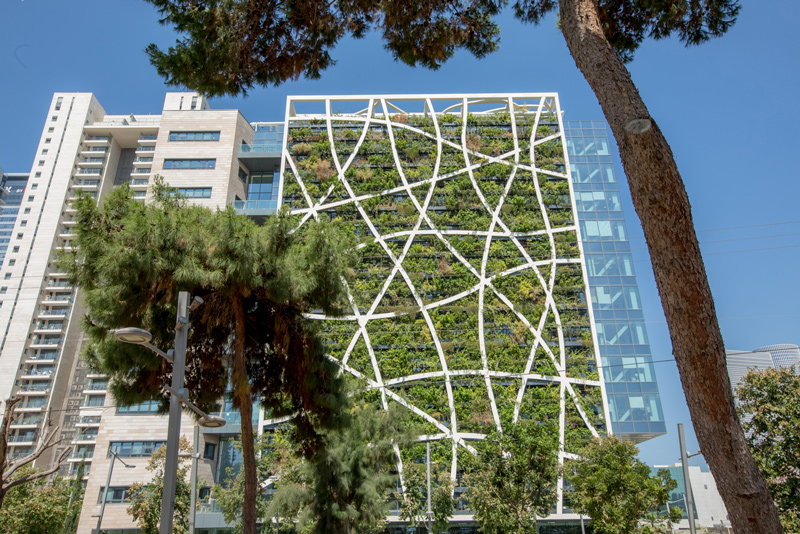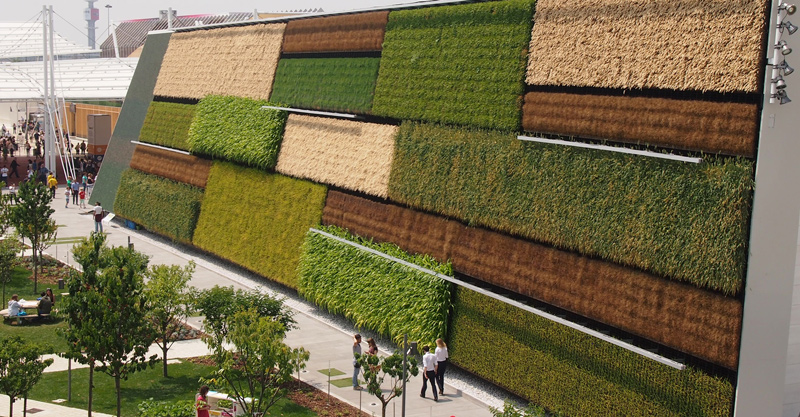
Vertical Field is collaborating with academia to study the impact of smart living walls in urban settings in terms of the environment, human health and wellbeing.

Tel Aviv-based company, Vertical Field, is launching what claims to be the world’s largest ever research study on the impact of smart living walls in urban settings in terms of the environment, human health and wellbeing.
The company is a provider of natural smart living wall solutions and has delivered next-generation vertical fields and agriculture for global clients, including Facebook, Intel, Apple and Microsoft.
Scientific parameters
The long-term research study will be led by Professor Itamar Lensky and colleagues from Bar-Ilan University (BIU), the Agricultural Research Organisation, and the Hebrew University of Jerusalem, together with Vertical Field, and will take place over a number of years.
It will monitor and analyse a range of scientific parameters pertaining to living walls, such as CO2 footprint reduction, heat reduction, impact on air quality, health impact assessment, economic benefits evaluation, establishment of winning economic models, and other aspects.
The research aims to alleviate and minimise the adverse effects of rapid urbanisation and increased building density on the environment, as well their impact on human health in an urban ecosystem.
“The study will hopefully provide scientific, measurable data that will enable us to promote a more sustainable life for all in congested urban environments”
“Urban areas are now home to more than half of the world’s population. Not only do they generate about 80 per cent of the world’s economy, they are also responsible for more than 70 per cent of global energy use and production of global energy-related emissions,” said Guy Elitzur, CEO of Vertical Field.
“There is an urgent need to create a more sustainable way of life in cities across the globe. The research led by BIU, the largest study ever undertaken on the effects of smart living walls in urban environment, will hopefully provide scientific, measurable data that will enable us to promote a more sustainable life for all in congested urban environments.”
The research is supported by the Israeli Science Foundation and the Ministry of Science, Technology and Space. It also integrates innovative solutions from Environmental Resources Management (EnviroManager), Israel’s largest private company engaged in continuous environmental monitoring, and from Netafim, a global manufacturer of irrigation equipment.
